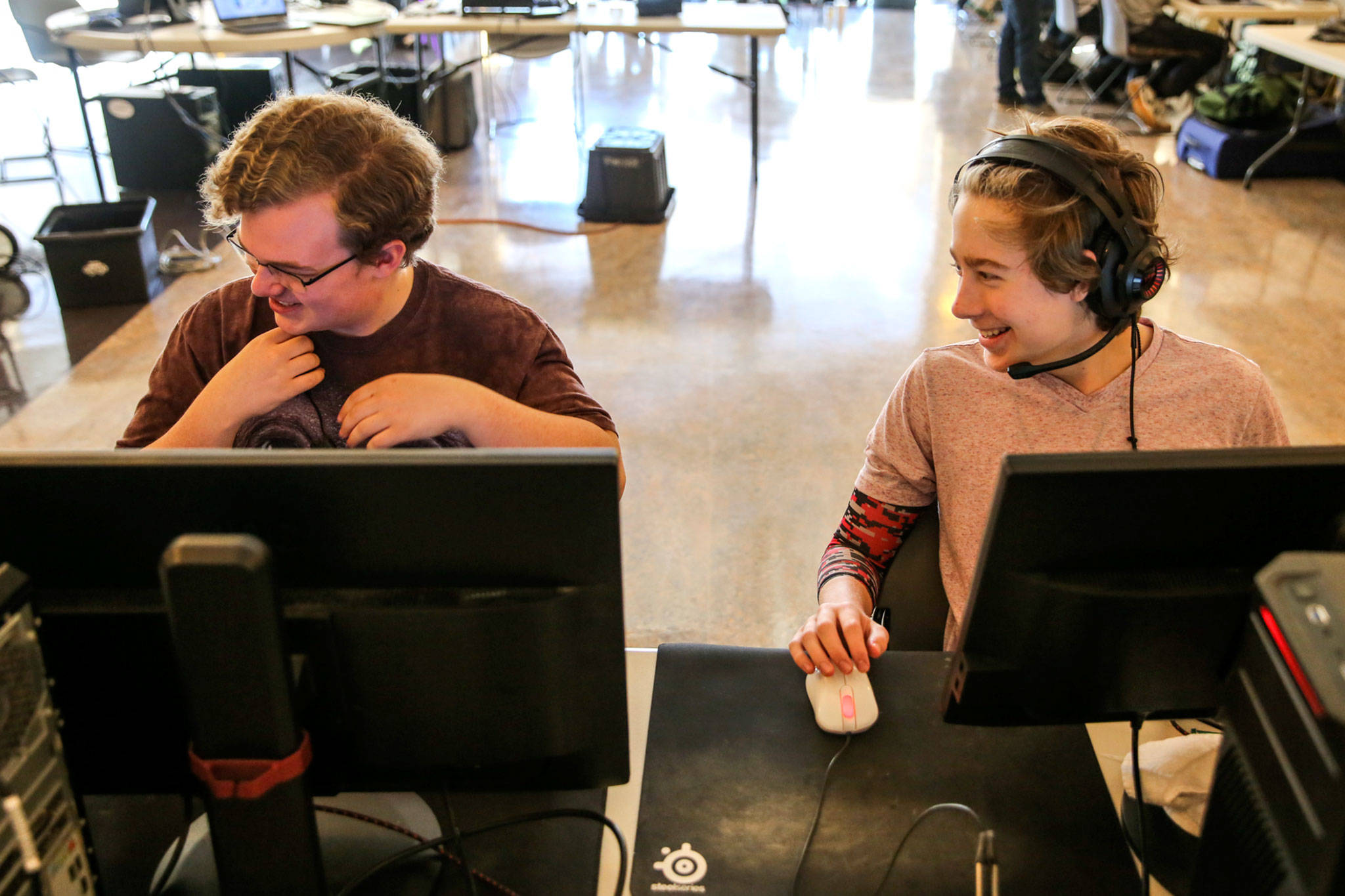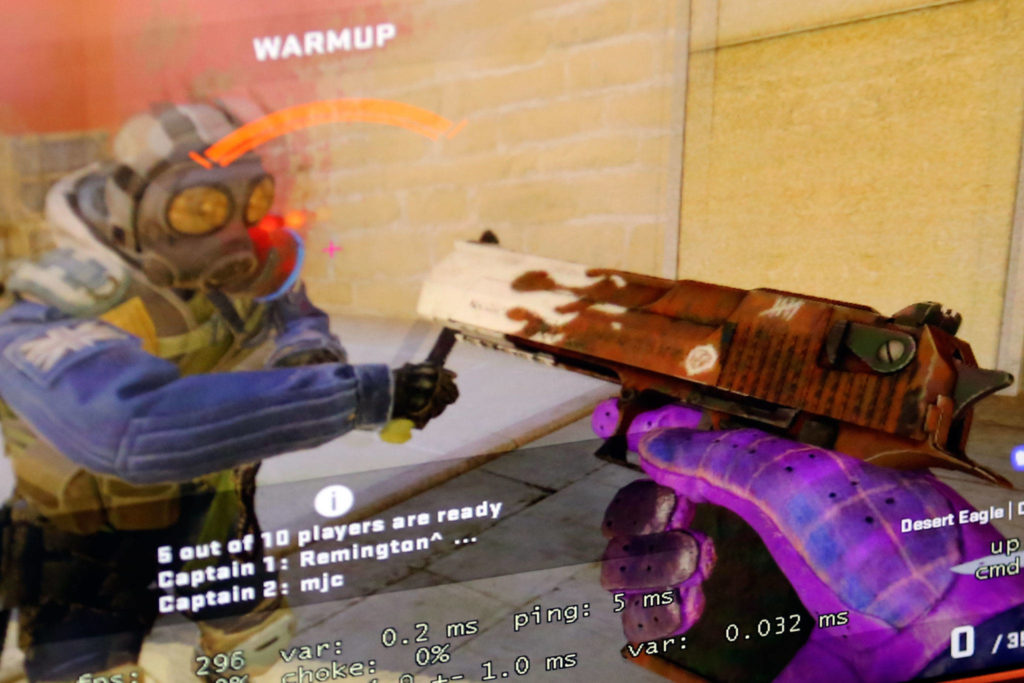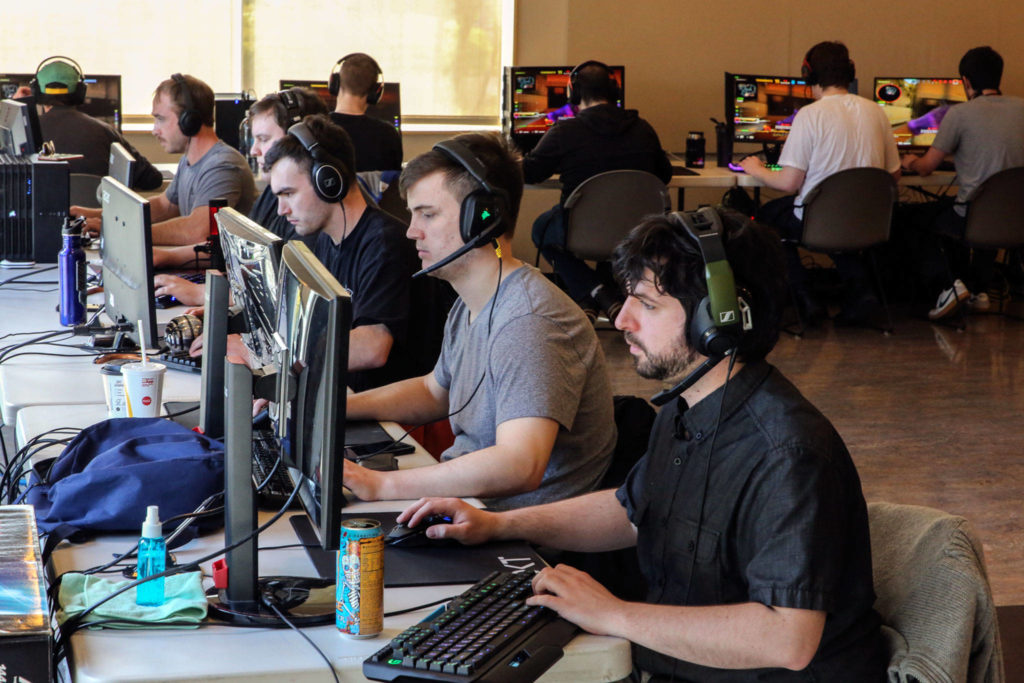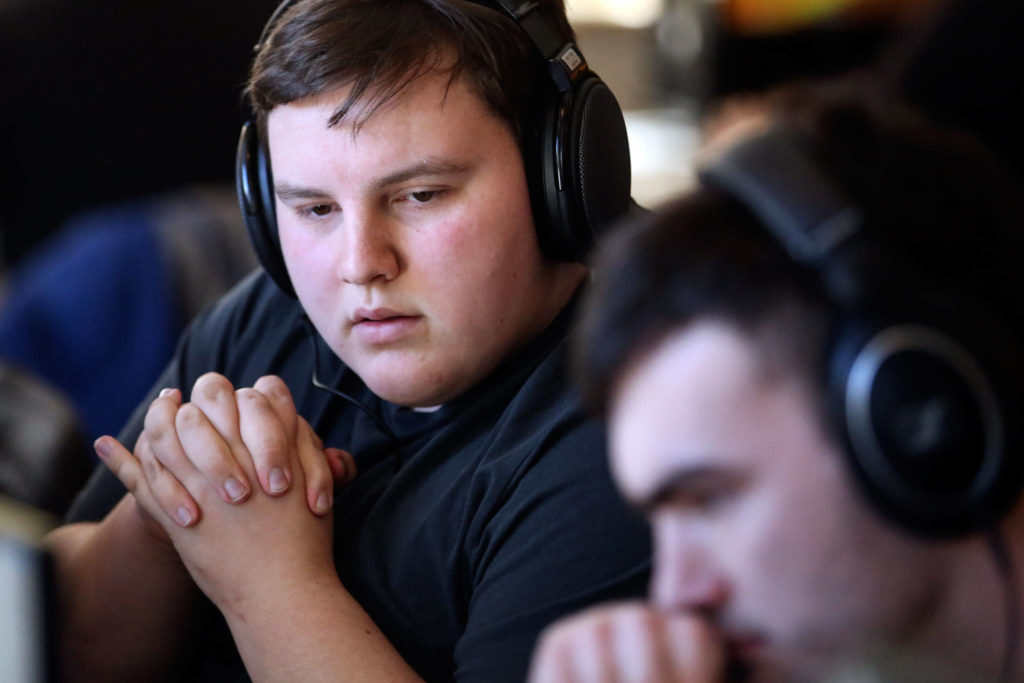Teams of five gathered to compete in a small tournament at Willis Tucker Park in Snohomish on Saturday, April 27, with the ultimate goal of coming out as champions and taking home the cash payout that went along with it.
Communication was key as players called out different offensive and defensive strategies.
Sounds like a competitive pickup basketball tournament, right? Not quite.
This was Northwest ESports’ No Scope IV BYOC (bring your own computer) tournament, an esports event for the popular game Counter-Strike: Global Offensive.
Esports — otherwise known as competitive video gaming — is one of the fastest growing competitive sports in the world, with massive amounts of money being pumped into the professional ranks from sponsors and corporations trying to get in on the booming industry. Prize pools from some of the biggest worldwide tournaments rival — and in some cases surpass — traditional major sporting events like the Daytona 500, Wimbledon and the Kentucky Derby.
Esports events range from a wide array of different genres. Whether it’s first-person shooters like Counter-Strike, multiplayer online battle arena games like League of Legends or traditional sports games like Madden, there’s a market for players around the world in each niche.
As the sport’s popularity continues to increase, the demand for more smaller-scale local and regional events is growing. That’s where Northwest Esports is trying to step in and create a community for local gamers to meet and compete with each other.
Jake Greene, founder of Northwest ESports, has competed since he was a teenager. Now 31 years old, Greene was contracted to play on a professional Counter-Strike team in 2005. After his time spent with the team, he took some time away from esports. He returned later to find the local area network (LAN) centers many gamers once used to gather at and connect were gone.
“I saw this need to kind of fill a void of these old kind of local-tournament series that we used to have,” Greene said. “They just weren’t happening anymore.”
“Something like a league is really what the ultimate goal is, in addition to having a brick-and-mortar location that this could go on at,” Greene added.
Greene and his team have thrown well over two dozen esports events over a variety of games while trying to build a go-to community for local players, which is helpful for those just breaking into the scene at a local level to find teams and competition.
“It was a bit of a process to figure out people to play with and teams,” said Michael Sparks, a 26-year-old competitor at the No Scope IV event. “But it’s like anything, once you build a network there’s a lot of opportunity out there. And now more than ever, if you really dedicate yourself, you can really kind of capitalize on the opportunity.”
Donavin Stuck, 31, has played Counter-Strike competitively since 2004 and said that tournaments and the communities that have formed since he started playing have given gamers a place to call their own.
“All the people in high school, they had their footballs and their baseballs and whatever that they could focus on,” Stuck said. “As gamers, there wasn’t really anything for us to cling on to. Whenever those things started to come out and we started to experience the world of esports, it gave us a whole new avenue to be able to channel what we like to do.”
He stressed the importance of local communities coming together for gamers who normally tend to have more introverted personalities and aren’t the type to go out and search for people to play with.
“Community is honestly one of the biggest things,” Stuck said. “There needs to be a central hub that people can meet.”
Stuck, who uses the name ‘What the Stuck’ on the popular video-game streaming app Twitch, spent Saturday behind the microphone giving play-by-play commentary for the tournament’s live stream broadcasted over the app.
The setup for these events for Greene and his team can be extensive.
First and foremost, they need a venue. The event at Willis Tucker Park was a unique one because the Snohomish County Sports Commission of the Snohomish County Tourism Bureau helped Greene and Northwest ESports get the ball rolling for the event.
Greene said he hadn’t heard of local government being involved in these events and that dialogue with the sports commission started about a year before the event was actually held.
Next they need to promote the event through social media and other means and find competitors. Then there’s the setup and the all-day work to make sure servers and all the other technical nuances run smooth throughout the day.
Some may argue the validity of classifying playing video games as a sport, but there are many similarities between competitive gaming and traditional sports.
The offensive and defensive strategies that players and teams use in esports competitions work just like plays being called in basketball or football games, and there are general plays and strategies that are commonly known through gaming communities like the pick-and-roll is known as a staple on the hardwood.
“It’s usually about the timing. That’s how you can really be successfully,” said Michael Sparks, a 26-year-old competitor at No Scope IV. “Anybody can call a (play), but it’s really about how you execute it and the timing and all the intricacies and the nuances. That’s like any professional sport, the higher the level you can see the nuances and appreciate it.”
And just like any other professional sport, getting to the top is a long, hard climb.
“You have to work 24/7 to be able to make something out of it,” said Stuck. “That’s where people fall off the map. Everybody wants to be a Twitch streamer, everyone wants to be a YouTuber, but nobody really understands and realizes that living in the limelight is great, but once you look past it and see it for what it is, it’s a lot of work.”
Living in the limelight of esports can be a very lucrative deal.
Esportsearnings.com, a site that tracks prize money awarded at esports events that have been published online, lists Kuro Takhasomi of Germany as the world’s top earner with $4,164,927 in payouts earned throughout his career.
Forbes estimated that worldwide revenue produced by esports in 2019 would reach $906 million.
With all the money up for grabs and new opportunities arising in different pockets of the world, people are taking notice.
Teams are being formed at colleges, ESPN’s first-ever Collegiate Esports Championship starts Friday and the University of Washington just opened its own esports lounge on campus in April.
“I think that’s more of a hats off to technology in general,” Greene said of the industry’s growth. “When I was playing on dial-up, Xbox had been out for a couple years, the first one. People were playing online but technology wasn’t really as advanced as it is now. I feel like with that in mind, esports has the ability to integrate into arguably some of the same formats as sports that we have and the systems that we have for success in career as well.”
Talk to us
> Give us your news tips.
> Send us a letter to the editor.
> More Herald contact information.




























